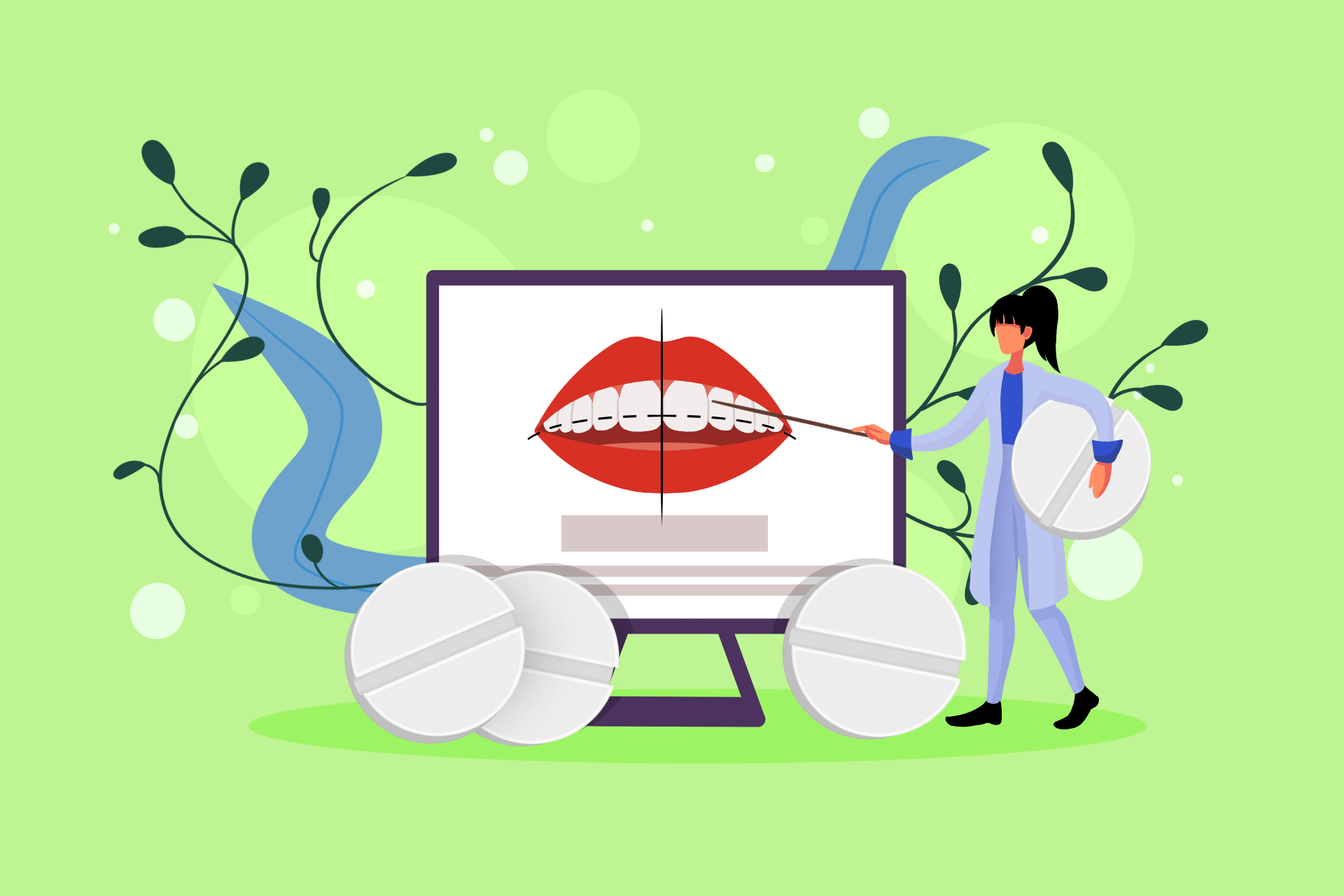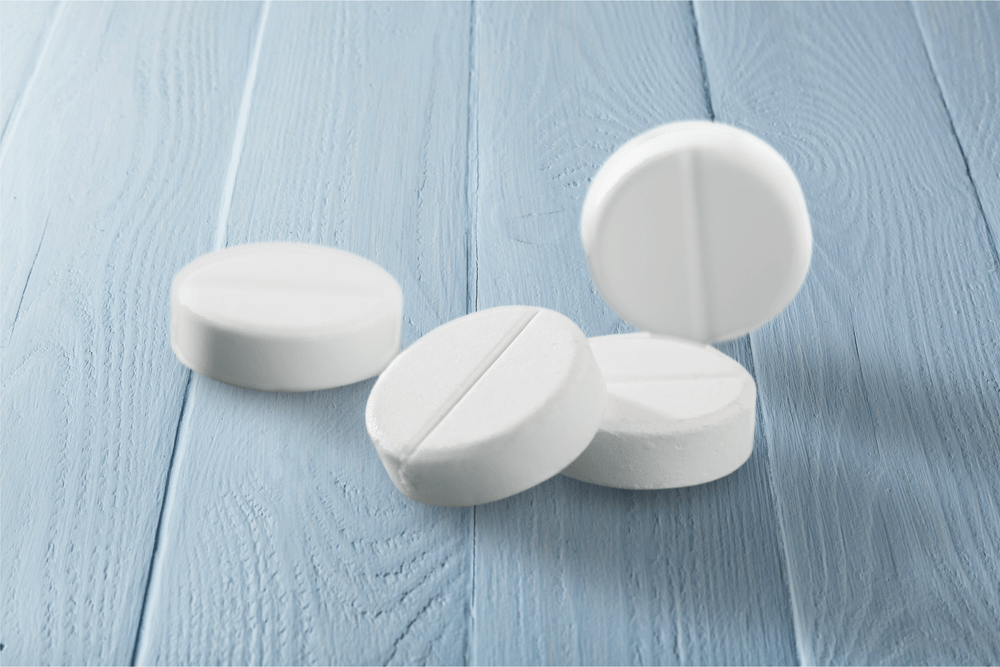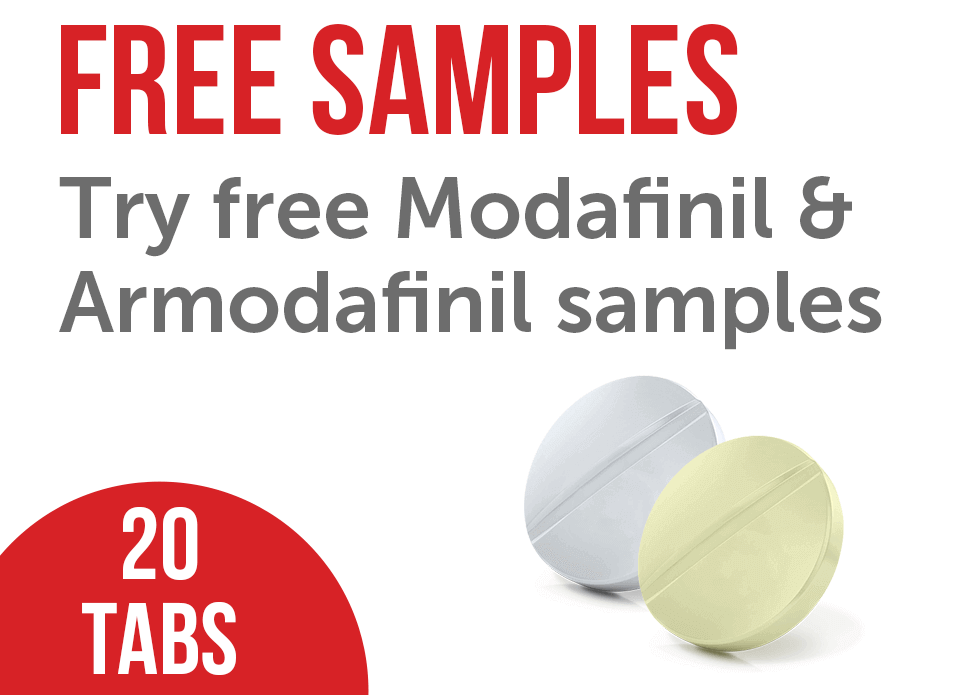Modafinil, a popular medication used for various sleep disorders & off-label as a cognitive enhancer, has several potential negative effects. One of these side effects that hurts your modafinil cognitive anticipation is teeth grinding, also comprehended as bruxism. Certainly, bruxism is a common condition characterized by the clenching and grinding of teeth, often during sleep. Teeth grinding can lead to various dental problems, and it is essential to understand the potential risk and ways to mitigate it.
In this article, we discuss the possible link between modafinil use and teeth grinding, as well as some tips on how to stop this side effect.
What Is Modafinil?
Modafinil is a powerful nootropic or “smart drug” used to promote wakefulness in individuals with certain sleep disorders, such as narcolepsy. It was developed in France in the 1970s by Michel Jouvet & Lafon Laboratories, now known as Cephalon. The company patented it in 1986 under the name “Modiodal,” and it was later approved by the US Food and Drug Administration (FDA) in 1998 as a treatment for narcolepsy under the brand name Provigil [1].
Since then, modafinil has been approved for several other uses, including treating sleep disorders related to shift work & obstructive sleep apnea. It has also been used off-label by healthy individuals for various purposes, such as improving cognitive function and enhancing productivity. Its cognitive benefits include boosted memory, alertness, mental acuity, focus, attention, motivation, as well as planning & decision-making abilities, etc. This effect is thought to be due to the drug’s ability to increase levels of certain neurotransmitters involved in cognitive processes. Such neurotransmitters include dopamine, orexin, norepinephrine, and histamine.
Besides, doctors prescribed modafinil for several other off-label uses, including attention deficit hyperactivity disorder (ADHD), depression, Parkinson’s & Alzheimer’s disease, multiple sclerosis & chronic fatigue syndrome; jet lag, weight loss, schizophrenia, bipolar disorder, social anxiety disorder, traumatic brain injury (TBI), substance abuse (particularly cocaine addiction), borderline personality disorder & fibromyalgia. Correspondingly, it treats myotonic dystrophy & seasonal affective disorder (SAD).
Moreover, the “smart drug” is used in sports performance, military operations, students, + poker & gambling to enhance concentration, vigilance, memory, focus, and decision-making. Similarly, it’s remarkably common for business productivity. This is why business executives & professionals are familiar with modafinil, due to its aid to achieve an edge.
Greatly, unlike other stimulants such as amphetamines, the “smart drug” has a low potential for abuse & dependence. It doesn’t produce the same euphoria or “high” as those stimulants, thus making it less possible to be abused. Besides, it has fewer negative effects. It’s generally well-tolerated, which is another reason why it has become popular among healthy individuals. Further, modafinil has a long duration of action, which is 12–15 hours. Due to these insanely great benefits & a safety profile, the “smart drug” has become the most popular drug among healthy individuals seeking to enhance their cognitive function & productivity.
Furthermore, modafinil’s patent expired in the United States in 2012. This allowed other pharmaceutical companies to produce and sell generic versions of modafinil, which are typically much less expensive than the brand-name version. Increased competition leads to lower prices for shoppers. The availability of generic modafinil has made the med more accessible.
Side Effects of Modafinil
As earlier mentioned, modafinil works by altering the levels of certain neurotransmitters in the brain, such as dopamine and norepinephrine, which can affect various bodily functions. The negative effects of modafinil are thought to be a result of these changes in neurotransmitter levels + their effects on the central nervous system. Some people may be more sensitive to the med, while others may be able to tolerate it without experiencing any adverse effects.
Some negative effects of the “smart drug” may also be related to the individual’s genetics & how their body processes the medication. Additionally, certain medical conditions or other meds being taken concurrently can increase the likelihood or severity of side effects. Some modafinil contraindications include liver/kidney disease, cardiovascular disease, drug or alcohol abuse, hypersensitivity, mental health conditions, etc. Patients with a history of mental health conditions such as psychosis, depression, and anxiety disorders should also avoid using modafinil, as it can exacerbate these conditions. It’s great to always discuss potential negative effects with a physician before starting any new med.
Some of the more common negative effects of modafinil include:
- anxiety;
- nausea;
- headache;
- nervousness.
Less common negative effects include the following:
- back pain;
- dryness of the skin or mouth;
- lessened appetite;
- belching;
- feeling of constant movement of self or surroundings;
- diarrhea;
- muscle stiffness;
- problem having a bowel movement;
- flushing or redness of the skin;
- heartburn;
- indigestion;
- sores, ulcers, or white spots on the lips or in the mouth;
- sour stomach;
- stomach discomfort (upset or pain);
- stuffy or runny nose;
- swelling;
- vomiting.
Serious but rare side effects of modafinil include:
- severe allergic reaction (anaphylaxis);
- Stevens-Johnson syndrome (SJS) or toxic epidermal necrolysis (TEN);
- psychiatric symptoms such as aggression, agitation, hallucinations, and suicidal thoughts;
- cardiac events such as chest pain, heart palpitations, and increased blood pressure;
- seizures;
- skin reactions such as rash, blisters, and hives.
Note: This isn’t an exhaustive list, and individuals may experience different side effects depending on their medical history and other factors [2]. Overall, it’s great to be aware of the potential side effects of modafinil and to discuss any concerns or questions with a physician.
Close monitoring and communication with a healthcare provider can help minimize the occurrence and impact of side effects.
Are Dental Problems a Side Effect of Modafinil?
Dental difficulties are not commonly listed as a side effect of modafinil use. However, some individuals can experience teeth grinding (bruxism) as a possible side effect of modafinil. Bruxism can potentially lead to dental issues if it is not addressed, such as tooth damage or jaw pain. It is indispensable to note that not everyone who takes modafinil will experience teeth grinding or any other dental issues.
Modafinil stimulates the nervous system, including the sympathetic nervous system, which is responsible for the “fight or flight” response to stress. This stimulation may contribute to teeth grinding and clenching in some individuals.
Regardless, some people may experience dry mouth or increased thirst as a side effect of modafinil, which can also increase the risk of dental concerns such as tooth decay and gum disease. Maintain good oral hygiene & visit a dentist regularly while taking modafinil or any med that causes dry mouth. If you experience any unusual dental symptoms while taking modafinil, talk to your doctor or dentist.
Tips to Stop Modafinil Teeth Grinding
There have been reported cases of teeth grinding as a side effect of modafinil use. According to Ehealthme.com, as of March 1, 2023, 34 people (0.15%) out of 22, 457 reported having teeth grinding [3]. The exact mechanism of how modafinil causes teeth grinding is not fully understood, but it is believed to be related to its effect on dopamine levels in the brain. Modafinil’s unique type of stimulation may lead to jaw clenching, teeth grinding, or other involuntary movements that are similar to those seen with traditional stimulants at high doses. However, these effects are typically less frequent and less intense compared to amphetamine or cocaine use [4]. If you experience teeth grinding while taking modafinil, there are various tips you can try to manage this side effect:
- talk to your physician: If you are experiencing teeth grinding or any other side effects while taking the “smart drug,” talking to your doctor is paramount. They may be able to adjust your dosage or suggest alternative treatments;
- drink plenty of water: Staying hydrated can help keep your mouth moist and reduce the risk of teeth grinding;
- reduce modafinil dosage: This can help prevent teeth from grinding associated with its use, as it decreases the overall stimulant effect on the body. Lower doses of modafinil may have less of an impact on the central nervous system, reducing the likelihood of side effects such as teeth grinding;
- practice good oral hygiene: Teeth grinding can cause damage to your teeth and jaw. Practicing good oral hygiene, such as brushing and flossing regularly, can ultimately aid prevent or mitigate any damage;
- use a mouthguard: A mouthguard can superbly aid to protect your teeth and jaw from the effects of teeth grinding. You can purchase a mouthguard over the counter (OTC) or have one custom-made by a dentist;
- chew gum: Chewing gum can help prevent modafinil teeth grinding in a few ways. First, it can provide a distraction from the urge to grind or clench teeth. Second, it increases the production of saliva, which can help lubricate the mouth and reduce the risk of tooth damage. Third, it engages the muscles in the jaw, which can help relieve tension and reduce the urge to grind or clench. It’s essential to note, however, that chewing gum isn’t a cure for modafinil teeth grinding & should be used in conjunction with other strategies, such as reducing the dosage or wearing a mouthguard. It’s also significant to choose sugar-free gum to avoid dental issues linked with sugar consumption;
- try relaxation techniques: Stress & anxiety can exacerbate teeth grinding. Relaxation techniques such as deep breathing, meditation, or yoga may aid alleviate the symptoms;
- avoid caffeine and stimulants: Caffeine and other stimulants can increase the likelihood of teeth grinding. Limiting or avoiding these substances may help reduce the occurrence of teeth grinding;
- pay attention to any jaw or facial muscle tightness: Teeth grinding can cause muscle tightness around the jaw and face. If you notice any discomfort or pain in these areas, it may be a sign that you are grinding your teeth;
- take breaks from modafinil use: If you are using modafinil regularly, taking breaks from the medication can help reduce the risk of teeth grinding and other side effects.
Besides, try to become more aware of your teeth grinding by paying attention to any signs of jaw pain or tooth sensitivity. If you notice any, speak to your dentist, who can evaluate the extent of damage and provide treatment recommendations.
The Verdict: Modafinil & Teeth Grinding
In conclusion, while the “smart drug” can be an effective treatment for sleep disorders & cognitive capabilities, modafinil teeth grinding can be a bothersome side effect for some individuals. This condition is rare & is not reported by the FDA as its predominant adverse effects. Certainly, bruxism can affect your oral health by depleting the tooth enamel & inducing tooth sensitivity, pain, & stiffness in the jaw. If you experience this side effect, it is significant to talk to your doctor. The condition can be prevented or improved by following the above-given tips, such as practicing jaw exercises & getting a good mouth guard.
References
- Modafinil. Retrieved: March 7, 2023. Wikipedia.org.
- Modafinil Side Effects. Medically reviewed by Drugs.com. Last updated: November 24, 2022. Retrieved: March 7, 2023. Drugs.com.
- Provigil and Teeth grinding – a phase IV clinical study of FDA data. Retrieved: March 7, 2023. Ehealthme.com.
- Modafinil. Retrieved: March 7, 2023. Psychonautwiki.org.








